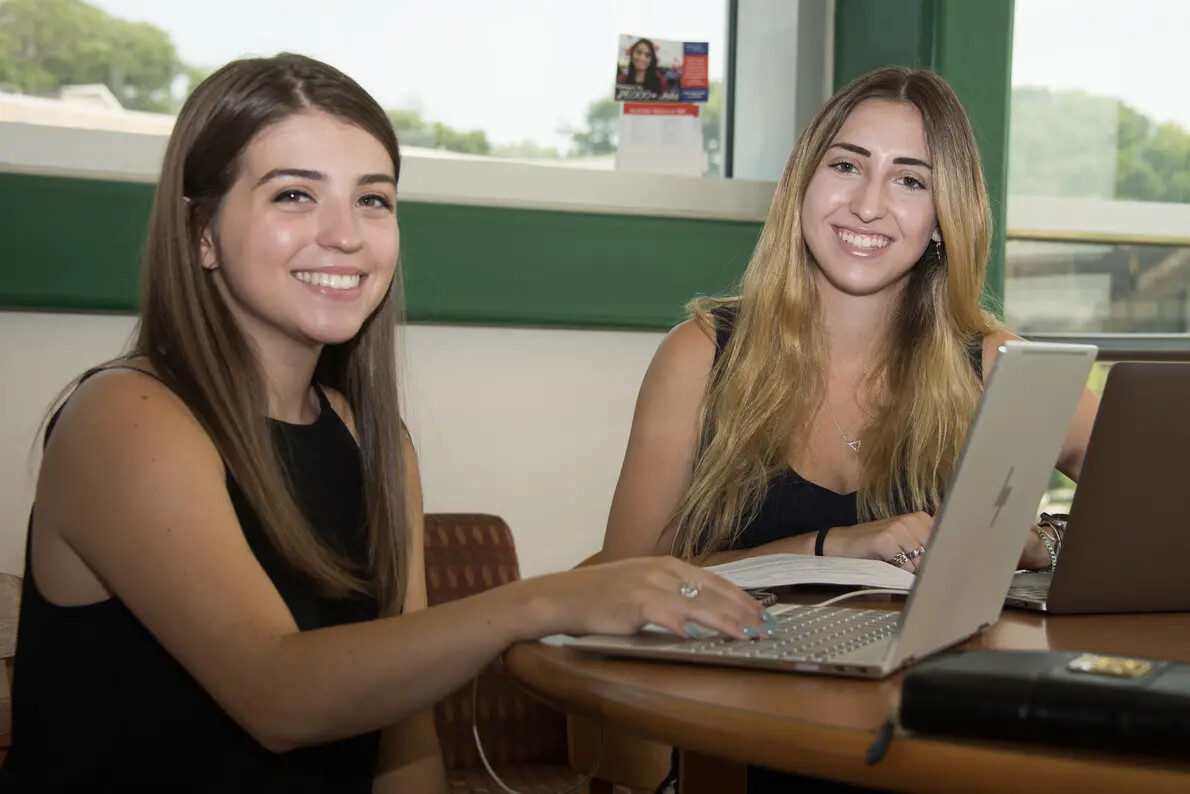Use of Free Educational Resources Helps Reduce Textbook Costs, Updates Educational Experience for Many RVCC Students

Raritan Valley Community College continues to help students reduce their educational costs by providing free instructional materials in a growing number of classes. Since 2018, the use of free Open Educational Resources (OER) has saved RVCC students $3,635,349.59 in textbook costs.
Approximately 80 RVCC faculty members use free online resources in their courses instead of expensive textbooks. These resources can be downloaded, edited, and shared. In addition to the cost savings, students benefit by using course materials that can easily be customized by their professors.
“Students continue to struggle with the cost of college, especially textbooks which can cost more than $100 to rent for a single course, and then the books have to be returned when the semester is over,” said RVCC Instructional Services Librarian Megan Dempsey. “With OER, students not only save money, they also own their education instead of just ‘renting’ it. Their course materials are available on the first day of class and in whatever format works best for their learning style. OER are easily accessed from any device, too, which suits students’ busy lives,” added Dempsey, who has spearheaded the project with assistance from the OER Steering Committee, which she chairs. The initiative has received financial support through the RVCC Foundation.
When students register for classes they can see if a course has a zero-textbook cost or a low-textbook cost of less than $45. They can also search for “no cost” and “low-cost” courses as they are building their schedule.
Adjunct faculty members Viveca Sulich and Mark Yuschak created and published an OER textbook titled Environmental Studies: From New Jersey to the Globe that is being used in Introduction to Environmental Studies courses and is publicly available online at https://rvcc.pressbooks.pub/envstudies/. They received funding through the OER program to compile chapters from existing open textbooks and public domain information and create a customized text that meets the needs of specific RVCC courses.
While the previous textbook used for the course was not expensive, the ability to customize it was limited. In addition, it could only be rented for one semester, although it was the type of text that could be used as a reference for Environmental Science majors throughout their educational journey at RVCC.
“Going with an OER textbook also gives us flexibility in the content. We are able to edit existing OER content to more closely match our curriculum. This allows us to include information specific to New Jersey and our local environment and communities, as well as continue to update the resource with the latest climate science and analysis of environmental issues,” said Emilie Stander, Professor of Environmental Science.
When faculty choose to use OER in their classes, they discover new ways for students to be involved in their learning process. Several RVCC faculty are exploring open educational practices, including Open Pedagogy, which give students greater freedom in how they demonstrate their learning. Students can create new content that is in turn openly licensed and shared with future students or with the public.
Library faculty member Janelle Bitter and Anthropology faculty member Courtney Singleton started an Open Pedagogy project this semester with students in Anthropology 203: Indigenous North America. “Students spend the semester teaching each other about different Indigenous tribes or nations by researching topics such as origin stories, pre-colonial contact, and Native activism. The sources that they gather during their research will be compiled for use by future sections of the class or other researchers. This course is built using Open Pedagogical practices in part to give students the opportunity to focus on content most interesting to them, but also in an effort to move away from traditional sources written by non-Native authors,” explained Bitter.
“At least one source for each assignment must be authored by an Indigenous person or group. By elevating these voices, we have made an effort to incorporate non-academic definitions of authority and expand the knowledge students encounter,” continued Bitter.
“The Open Pedagogy approach also allows students to discover resources and topics of interest to them with semester-long support from Janelle as their subject librarian, creating a strong collaboration between both the faculty members and the students as they work on the project,” added Dempsey.
In addition, a fully updated Business Law OER textbook, funded by the RVCC Foundation, will be used beginning in the Spring 2024 Semester. Professor Melanie Morris has written substantial updates to the course’s 12-year-old OER textbook and added new assignments that encourage critical thinking and application of concepts. Students also have given their feedback on various aspects of the textbook, including the interactive elements and formatting. The new OER textbook will be shared publicly for adoption by other institutions.
RVCC continues to work toward offering degree pathways with minimal textbook costs. In the College’s Liberal Arts degree, for example, 51 of 60 credits in the program can now be taken as zero-cost courses, which is 85 percent of the program.
Among students surveyed over the last three years about their experience using OER, 64% said it improved their ability to complete their assignments, 52% said it increased their interest in the subject or assigned readings, and 56% reported increased satisfaction with the learning experience.
For additional information about Open Educational Resources at RVCC, contact Megan Dempsey at megan.dempsey@raritanval.edu.
RVCC is located at 118 Lamington Road in Branchburg, NJ. For further information, visit www.raritanval.edu



